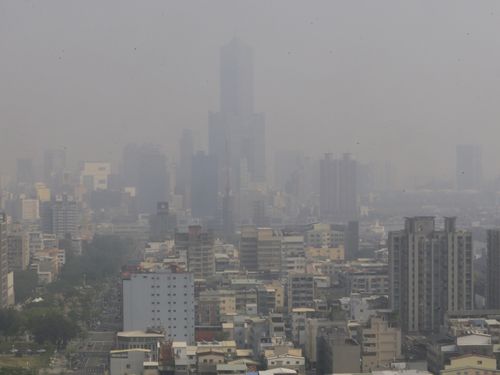Source: Thailand Medical News Dec 05, 2019 5 years, 4 months, 4 days, 22 hours, 4 minutes ago
Research led by Dr Han-Wei Zhang of China Medical University,
Taiwan shows that long-term exposure to hydrocarbons in the
air is a risk factor for
ischemic stroke development. The study findings has been published the open-access journal
PLOS ONE yesterday.

Past studies have demonstrated a link between
cardiovascular diseases and increased levels of ozone and airborne particulate matter arising from
air pollution. Two pollutants known as total hydrocarbons (THC) and nonmethane hydrocarbons (NMHC) play critical roles in the production of ozone. Sources of these pollutants include transportation, coal power plants, handling of fossil fuels and gaseous emissions.
The new study in which the researchers retrospectively analyzed data from
Taiwan's National Health Institute Research Database, which included healthcare data on 22.96 million people under the country's universal health insurance program.
Insurance claim data spanning the years 2000 to 2013 was analyzed on 283,666 patients aged 40 and over who did not have a
stroke diagnosis at the outset of the study period.
Information on
air pollution levels was obtained from the Environmental Protection Administration of
Taiwan, which measured levels of pollutants at 76 monitoring stations across Taiwan from 1993 to 2013.
This data was used to determine a person's average daily exposure to pollutants.Before controlling for multiple pollutants, there was a 2.69 times increase in
ischemic stroke for each 0.16ppm increase in THC (95% CI 2.64-2.74) and a 1.62 times increase in ischemic stroke for each 0.11ppm increase in NMHC levels (95% CI 1.59-1.66). After controlling for multiple pollutants, the adjusted hazard ratio was 3.64 for the increase in THC and 2.21 for the increase in NMHC. People exposed to average daily levels of more than 2.33 ppm THC were 664% more likely to have newly diagnosed
ischemic stroke than those exposed to less than 2.18ppm THC.
The recent study was limited by the fact that researchers were unable to adjust for confounders including genetic information and relevant clinical variables, as well as the fact that personal exposure to
air pollution levels is hard to gauge even with local information on pollutants.
Dr Zhang told
Thailand Medical News, "Long-term exposure to ambient hydrocarbons may be a risk factor for
ischemic stroke. These findings provide further support for the negative effects of long-term exposure to hydrocarbons in air on the human brain."
Reference
: Zhang H-W, Kok VC, Chuang S-C, Tseng C-H, Lin C-T, Li T-C, et al. (2019) Long-term ambient hydrocarbons exposure and incidence of ischemic stroke.
PLoS ONE 14(12): e0225363. doi.org/10.1371/journ
al.pone.0225363
